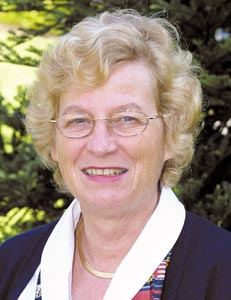Restrictions on travel to the US are having a damaging impact on international scientific collaboration, as Vera Lüth explains.

The free circulation of scientists, the freedom to pursue science, to communicate among scientists and to disseminate scientific information, are generally taken for granted in the regions we commonly refer to as the free world. The guarantee of those freedoms is the most important goal of IUPAP, the International Union of Physics and Applied Physics. Unfortunately, the events of the past few years have led to the curtailment of those freedoms. Visa problems have restricted travel to the US and have had a severe impact on the ability of scientists from many countries to continue their collaboration with scientists in the US.
While there have been difficulties in obtaining US visas in the past, these problems have become much more severe due to new rules and procedures. These procedures were introduced as part of the security measures to prevent illegal immigration, the infiltration of terrorists and the transfer of information that might lead to the design of weapons or their illegal import. Consular officers now have to interview all applicants and are held responsible for the consequences of their decisions. This has led to long delays in approvals and some denials of visas to bona fide scientists from many countries, primarily Russia and China. For them the visa application process has been drawn out from a few days to many months. On average, applicants wait for more than four months without any indication of when a decision may be made. Also, while the application is pending, the applicant’s passport is held at the consulate, thus preventing him or her from travelling to any other country.
A recent consequence has been that the attendance at the IUPAP-sponsored International Lepton Photon Symposium held at Fermilab was significantly affected. Realizing that the chances of obtaining approval in time were slim, many of the invitees withdrew their application; others did not want to subject themselves to the application process. This was apparently true not only for scientists from countries that have visa restrictions, but also from some Western European countries. While four years ago 46% of the invitees from countries with visa restrictions attended the Lepton Photon Symposium at Stanford, this was down to 27% at this year’s meeting. Almost all the Russian scientists travelled on multi-entry visas or were already in the US. The Chinese delegation was reduced to a single scientist, compared with 12 at Stanford in 1999. Their invited speaker, Lioyuan Dong, was denied a visa. Hesheng Chen, the director of IHEP in Beijing and a member of ICFA, received approval for a visa, but too late to allow him to travel. He wrote a letter of protest to the chair of IUPAP’s Commission on Particles and Fields, pointing out that he and his senior colleagues had repeatedly been prevented from travelling to the US. Indeed, IUPAP will discuss the overall situation at a forthcoming meeting.
Probably a wider impact than restricted attendance at an annual conference is the irrevocable harm caused to the US science community’s international collaborative efforts. For many decades particle physicists have been working at large laboratories, travelling frequently from country to country and sharing equipment and funds. An example is the D0 experiment at the Tevatron. To a very large degree, the D0 muon tracking system was designed and built by Russian groups. The visa denials and delays are threatening the full realization of the enormous investments by these scientists and their home institutions, and as a result the funds committed by the Russian government to support this project are likely to be redirected. The fact that this and many other activities involving our Russian and Chinese colleagues are performed under the auspices of government-to-government agreements stresses the irony and seriousness of the current situation.
The American Physical Society, the organizers of the Lepton Photon Symposium, several prominent scientists, and I as chair of the Commission of Particles and Fields of IUPAP, have tried through the US National Academy of Sciences (NAS) to intervene at the State Department, at the Department of Energy and at other government agencies. The NAS, which is recognized by the US government as the adhering body for international science unions, has increased its efforts to report on these impediments to the Bureau for Consular Affairs, to develop procedures to account for reported delays and refusals, and to coordinate the reporting with other professional societies. But despite recent pronouncements by the State Department, the situation has worsened.
While I understand the need for tighter security and controls of the borders in these troubling times, I am convinced that the visa restrictions for scientists do not serve that purpose. To the contrary, collaborations among scientists have in the past been highly beneficial in times of crisis – they have helped to reduce international tensions rather than impeded security. I personally fear that unless there is clear evidence that the imposed measures have a truly damaging impact on the US, it will be difficult to attract the attention of the US Congress or government. Thus, it is my hope that the international community in Europe and Asia may be able to raise these issues at the highest levels and delineate the current procedures as deleterious not just to science, but to international relations in general.







